EP2: Exploring the power of data for futureproofing media
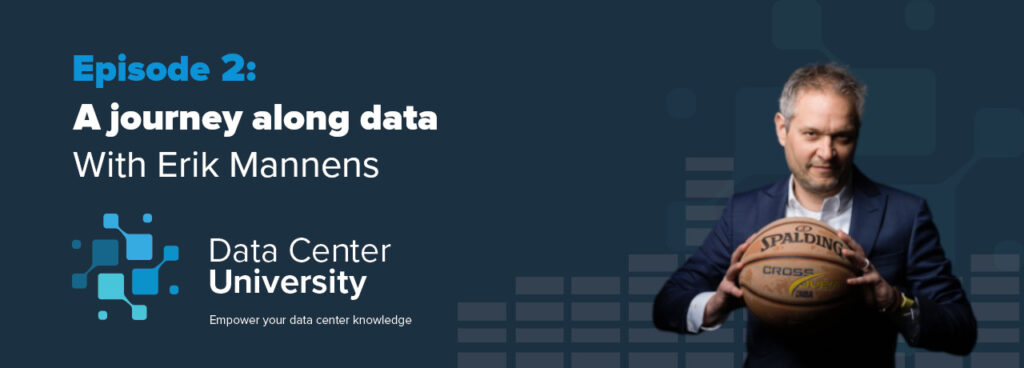
In this episode Erik Mannens, Director at imec UAntwerp IDLab, Professor at UAntwerp (Sustainable AI) and Ghent University (Semantic Intelligence), takes us on a journey along data and its tremendous possibilities. From ownership of content, collecting and storage and the role of a data center, to interpretation and security. If you’re working for a media company and want to get inspired by the possibilities of data: we’ve got you covered. Tune in and discover how data is and will significantly change how users and companies operate online.
Our guest
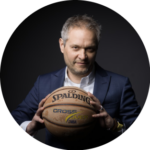
Transcript
[00:00:00.330]
You’re listening to the Data Center University podcast, where we explore the dynamic world of data centers. Tune into our podcast for the latest updates about what’s going on in the Belgian data center industry. From web3 to sustainability, cooling methods to regulations, we’ve got you covered with the essentials. Our topic for today: data, and especially the interpretation and ownership of data, is invaluable to future proof companies. How this data can be collected and used by media companies is therefore a much discussed topic of conversation. In this episode, Erik Mannens, director at imec UAntwerp IDLab, professor at UAntwerp (Sustainable AI) and Ghent University (Semantic intelligence) takes us on a journey along data and its tremendous possibilities, from ownership of content, collecting and storage and the role of a data center to interpretation and security. If you’re working for a media company and want to get inspired by the possibilities of data, we’ve got you covered. Tune in and discover how data is changing, and will significantly change how users and companies operate online.
[00:01:27.450]
Erik Mannens from SolidLab. We will give an overview in how Solid for Media can also make this possible. Okay, so bear with me. I’m trying to sell an idea. Not only an idea, but working prototypes so we can go towards a more ethical revenue model of data. So not only the GAfA get rich, but normal and good working citizens of small companies here, primarily in Europe, Belgium and Flanders do so as well. Now, I started out my team 15 years ago working on web standards, interoperability and okay, I was primarily evangelizing stuff towards companies. But the older I get, I saw also the need to kind of be more than an evangelist and really do stuff and make things happen. So I guess I changed my team from an evangelist to in fact warrior evangelists. Hence here the title. Now imagine this morning you got up while in the shower. You were overthinking your day. So who of you thought of this? What is my data going to do for me today? Anyone who got this as a thought early this morning under the shower? No? Guess so. But then again, under the shower already, we constantly think of how will we spend our time, how will we spend our energy, how will we spend our focus?
[00:03:10.300]
Or how will we spend our money? Right? So then again, why don’t we think about what is my data going to do for me today? Right? What really happens, alas, is how does my data work for a handful of big companies these days? This is what is happening and bis repetita placant. If you hear something more than once, it’ll stick. So thanks for the guide just before me, I will also talk about web one, two and three. So at this moment, we are living in an ICT world where really we’re living in a platform economy, right? If we started out the Internet back in 90, when Tim Bernards Lee, my all time favorite, Tim Bernard Lee, together with the belgian guy Robert Cayu, when he invented the Internet, he invented it as being something simple, something open and standardized, interoperable and free. But then the moment we started out with free, we got the wrong impression. It is free as in freedom, not free as free beer, right? So in the middle standards, access, conflict resolution, the early Internet, as it was foreseen, it should be a roundabout. Everybody should be able to go on it, and via standards, everything should work fluently, right?
[00:04:37.930]
So the last decade, I dedicated my own time and the time of my team to really make that happen, working on the standardization of the Internet. Now, looking backwards, where do we end up? For the moment, we end up with an Internet full of traffic lights, with these traffic lights, the big ones who control their own systems, and they will decide whether you can go on their platform or whether if you can get your data from their platform to another platform. So instead of simple, open and free, we ended up with something complicated, closed and cumbersome. And that’s a problem. That’s a problem both for us and users, the citizens, but also for new companies who have a great idea, but who are not able to penetrate into the market. Right? So let’s assume I have a new idea. I want to bring a new service to the market. It cannot happen because I don’t have the data. I don’t have the users, which they’re all in the big systems. So high risks to introduce a service with high investments. And if I do want to have my service out there, okay, you can do it.
[00:05:58.580]
Facebook, Lohan, Google, Lohen. And then all of a sudden, the moment you do that, you lose the largest portion of your own added value. You have to spend. Probably 50% of your revenue goes to these big players. So in the end, it kind of hampers innovation, because lots of innovation does not happen because these dominant big players just stay on top. Now, if you look at the other side, as an ant user also there, you think the web is now 30 years. We should have been evolved. But no, it’s still an extreme hassle for a user to change serves, because one way or another, you have to change your data from one provider to another, and they do not make that easy. Even with open APIs, it’s not easy to transfer all your data. It’s even difficult to combining services on your data, different services on the same data, almost not possible. Or even combining one services on different silos of data. It’s very cumbersome. So then web three to the rescue. And with web three, I will make a little distinction of what our prior speaker said, what web three is. For me, it’s all about being able to let data flow.
[00:07:23.250]
Let data flow. And then again, we already heard that in the 90s it was read only. We were the consumers first major fault. We got all the services for free, but in the back end we paid with our cookies and with the ads we did not want. Right? So back 2005, indeed, web 20, we become interactive producers. And then you think, okay, maybe we have some more rights, but in the end it’s all about these big silos with walls around it. And the Facebook, the Googles, who were tapping into web 20, but only to harvest even more data. And then not only charging for their service, which is okay. So every company should make money on top of their service and why their service is good. Not afterwards by also, again, not passing by the cashier only once, twice or three times, but no selling reselling of your own data, which is not right. So comes along web three. And there I have a different opinion than my prior speaker. Web three indeed. It’s all about decentralization, transparency and privacy, thus self control. Open web standards, namely solid. I could have put also ledger technology like blockchain and all the rest with nfts with it, but we will have the discussion.
[00:08:59.780]
I did not do that because it’s not transparent. It’s very difficult if you have one ledger technology to change it by another. Right. That’s really why I do not want to call it in the same realm. But again, there are solutions where I think blockchain will make a difference, like smart contracting. But saying that chain will be the next version of the Internet, that’s really a bridge too far. Then I’d rather have the next version of the Internet based on open web standards as I see it. And then blockchain is definitely an add on, but not a solution to all the problems. But let’s have the discussion later on. So, as I said, my team is not only an evangelist, but an evangelist warrior. So what I want to do is, okay, our passion is to deliver a web three decentralized and a fair Internet where users have control over their own data. Control is more important than ownership control and they trust identities. Now I want to make it even more specific. The very moment data and all the metadata is created. The one that creates it has by default the control and or is by default the owner.
[00:10:25.670]
Again, this does not mean that companies cannot make profit or money. The difference is that you have to have a superior service, as I will show you. So along comes solid and petite is okay. I’ve been around in Internet technology since already almost 30 years. Yes, ladies, I’m over 50. So I started with building intranets and the first Sony Webshop back in 95, based on, I think, Javascript on the server, which I’m very progressive at the time, but I started in the Internet realm like three, four years after it was invented by my hero, Tim Bernard Lee. And then in 2005, when I changed back more to fundamental research, I came in and started my team on interoperability and semantic web, which again, Timberlaz Lee invented in 2002 or something. So I was again three years late. So when he coined the notion of solid back in 2017, one of my best researchers was working on decentralized databases and make an efficient way to kind of query it and make federated results back. I said, look, go to MIT and talk to Timberless Lee, and then the rest, as you will see, is history. So since then, we’ve been working together with the team of Timberless Lee at MIT.
[00:11:57.890]
And as you will see, let’s say that there are in the world 300 solid experts then, plus 100 are here in Belgium. So if you want to be one of the first to jump the wagon, the knowledge is here in Flanders. Okay, so what is solid? We reverse the Internet. We say, look, whenever data is created, it is created in these personal data pods, and you can have data pods on whatever data. You will not have one data pod. You will probably have ten data pots. It will also not be all in one provider. You will have a databot at the government, you will have a databot with your bank, and you will have a data bot with your wholesaler, for example. But of course, the key is that they have a unique web id, so that in the token and the other web three, where you are identified once and automatically when you have your web id, all your data pods, wherever they are, are interconnected. And each of these data pods can have different sensitivity levels, different access controls, different lifespans, et cetera. So, for example, your health data bot, you will have one the moment you are born, and then it will stay alive until you’re dead.
[00:13:21.410]
Now, what does this mean? Let’s say that Facebook, to name one, works according to this principle. Then this is a post on your Facebook profile. And you see, okay, it’s my post, so it’s my photograph, my name. These data subjects will be in my datapot. I comment on something from the standard, for example. So the text sits in a datapot of the standard. By the way, a datapot that’s nothing personal. It can be a company, it can be a building. So a datapot is not something that is one on one related with an individual. That can be something else. The photograph was from a photographer that worked for product. But of course, this photograph will be in the datapot of the photographer. And then you might like my post or not. So each of you individuals, you like the post, it’s your like, so it’s in your datapot. Instead of Facebook having to drag the data out of one huge data lake that they own, they have to kind of drag the data of probably maybe 50 data pods. So it’s another way of querying lots of different databases out there. And that’s a challenge.
[00:14:39.750]
But we are working on it to make that happen, of course. And be aware, with contextual information you only have for Facebook, for example, you only have 500 friends, a certain width context, maybe Facebook will know that they only have to query data pods instead of 500. This really works already in life, and you can already make applications with it now, it comes with other important and cool stuff if you’re kind of a software engineer. So on the left hand side, you see the old world with the big silos, where you lose control because the data is in their silos. And then if you want it or not, how many times did you had to provide your email address or your telephone number or you name it? There will be duplicated efforts and there will be outdated and incomplete information about you somewhere, right? So, bound to break somewhere. Not all these services work perfect, right? Whereas on the other side, if all the data is in your datapod and your address changes, okay, it is changed in your datapod, and whatever service is already using your address, it will always be right. Okay? So this is an extra you get if you follow the solid paradigms.
[00:16:10.670]
Again, applications as we know it will evolve to kind of views. On top of your data pods, you see on the left hand side, again, everything is duplicated. Your address list, your pictures, your agendas, and probably not all is correct. So some will be outdated, whereas on the right hand side, every single service provider can use your pictures, can use your agenda, can use your contact list if you want them to use this kind of data, only if you want them to be. And when will you do that if they have a superior service? Right? It’s not about data ownership anymore, it’s about getting the superior service. Also for competition, you will have multiple winners then if you follow this paradigm, instead of a single market for centralized applications where competition these days is based on the data ownership, where it’s innovative, very difficult to enter the market, while on the other side you will have a datapot market where again LCL could come up with the best solution to host the datapod, but also Google and Facebook or belfies. And on top of that you will have an app market where the best service will win and not the one with the most data, because it’s not about data ownership anymore.
[00:17:42.890]
So what is solid? Well, in fact, it’s not a platform to replace others. It’s based on plain web technology, based on W three C standards. It’s completely interoperable. It’s a movement where there’s really a shift in the app builder mindset where you say, okay, it’s a view on a myriad of small databases instead of a single direct application on a big walled garden. And it’s a community. And I already told you, we here in flounders, we are frontrunners. We help standardize it. Together with Tim Bernard’s Lee, we have a complete open source stack that we are working on and we also have already some reference implementations working on top of Dppedia. And we work together with, unfortunately the first company that brings this solid server to the market. It’s a spinoff of Tim Bernard Lee and it’s an american company, we do not want that. Right? So the way internationally, I already told you that. And as I already had a long standing relationship with flounders and the ICT department within the flemish government, it was fairly easy to convince them to make kind of flounders a spearhead in this technology. And with the glance of Midland, I got my biggest project ever funded, four years, 50 million.
[00:19:18.210]
And it’s not only about the technology, because we know what we are building, but of course it’s also a mind switch. Businesses will need to reinvent kind of new revenue models to come and work on that. So there’s a societal level and an infrastructure and testing level. So it’s primarily my team Idlab, who’s running the show, but there’s other universities also kaileven for the security part, who is really deep into it. And within flounders, I convinced kind of four verticals to put money on the table to really make it happen. And the first two use cases that we’re working on right now, it’s about Janbon, where on top of that we are building in flounders, a data utility company. Like what Alia is for electricity. The data utility company will be for data for data pods. So the key is that hopefully within less than twelve months, every flemish citizen will have his or her own data pod from the government. And one of the first use cases that will be put into action is put completely onto the different data bots with jons. But I have to be honest, it was primarily Hildek Ritz who was also a believer.
[00:20:54.730]
So she started out the one on career management as well. And now that she went to healthcare, she also wanted that the healthcare systems here in flannels, who are also dispersed, as you will see in a moment, also try to make a use case via solid. So indeed, the first use cases with the data nuts company and flounders will be on migrating main Berger profile onto the data pods. And then there will be two other use cases to share diplomas and vacators together with Transit Nvidia Bay, and also internally, one on my wage, to have kind of automatically flag if some person deserves some extra money for his kids or whatever, for the ones that really have low wages to automatically give extra incentives instead of now they have to ask for it. If we know what the wage is, then automatically this will happen. Bear in mind that solid is just the backend system, and I guess the killer application will be if we use edge AI from pot to pot to kind of generate new knowledge or make decisions for that specific datapot. We are also working on an icon project together, indeed with a few companies.
[00:22:40.100]
I cannot tell all their names because it’s still being evaluated. I hope it will get green light early October. So if you want to know more, who’s behind it, but there’s certainly some small software vendors from flounders who really believe in this technology and who will build extra services on top of the base solid layer to really make it happen, to have zero knowledge, proof, verifiable credentials, et cetera, et cetera. Which brings me to the next use case that we’re working on is indeed, I think just only a few, one week ago we are. It’s a big project on solid that we endorse, but it’s, and you see there in the bottom half that also Zochnet and some umbrella organization of doctors really wants to endorse it as well. Because what we see in lots of verticals is that nowadays if you go to a hospital and the only data they have is the data they have from you, from that hospital. What we want is that every citizen gets its own health data pot, and then whatever caretaker or hospital or practitioner or a dentist or pharmacy you interact with that, all of these connect their data back to your data pod.
[00:24:20.840]
Whenever you go to a certain hospital, for some reason, then they can see the whole picture of all of your data, and it’s a mess even in Flanders, because we have two different systems. We have the university hospitals based on Kaileven, and then you have the other universities who use other standards. So it’s a mass cozo and other platforms. So hopefully this will be the start of kind a unification to get all this health info where it should be, and then we end up with media. That’s why I’m here. Solid for media. They’re one of the first believers in the project is VRT, and together with consolidate Kronos affiliate, they already made some pox, also together with us, but in a broader last year we’ve also been working internationally with the BBC to make it happen. So BBC now already has a proof of concept with their own profiles out there in data pots, where they harvest data from what they can, because it’s an API, what they can, they harvest data from. Netflix and Spotify also put that in the data pod so they can make better recommendations on a personal level on your media consumption.
[00:25:54.610]
What we will do with the pooftain is for all the media partners out there, make it possible that you can test use cases yourself. And the primary writers of the proposal are VRT. Dataville is also a small software company believing firmly in solid dita of London with the data on this company and my own team from Kent University. What is different about the big solid project we have running is that it will be the first time that we’re going to use kind of an Uber pot where you have a family pot that is an aggregation of different pots out there. Again, this AGI to do personalization engine on top of this family pot, which is primarily done by software companies, we want to show that also for the non believers, there is really money to be made via a closed loop advertising dashboard to really show to your advertisers that you’re worth the money to invest in. So probably a shift of mind of how advertising now is rewarded to these media companies. And of course we’ll also be looking at specifically for the use case of media on new business models and how the governance process takes in place.
[00:27:23.700]
Now, if you’re still not convinced, let me take you to this last example where wholesalers, primarily Colorad, is also looking at solid pots because believe it or not, you have to let go of your data obsession because you will not be able to get all the data you want, right? And Colred knows that. Colred knows everything about you, but only about the stuff I do in Colred, they do not know anything about the laser, the spark or what is it? Albert Kane right? So for example, Colgrid knows that I’m buying five liters of milk every week at Colgrid. But what they want to know is how many milk do I consume? So by adding other players into the system, you can get on a higher AI level and then anonymized saying to Colgrid, look, the guy is consuming ten liters of milk, make him a better offer, because now he’s only buying five. With consolidating data that is not from you but others that also come into the system, you can become smarter yourself. So that is something that also, for example, media companies, if some way or another on a higher level, on a higher abstraction level, they share some data, but in the end they can ask questions so they get more knowledge.
[00:28:58.800]
Then I think it’s a no brainer to go for such kind of project because you get more info after all. So I would say your data, your choice, and it’s all about making better services and in a solid way, while these data flows become better and better. So I would say in ten years time we see if it really did the trick. But I think web three is here to stay at both blockchain and the standardized web approach. Thank you.
[00:29:37.050]
So that’s it for this episode. Thank you for listening to our podcast. If you have any questions or suggestions for future topics, we’d love to hear them. And of course, tune in next time for more.
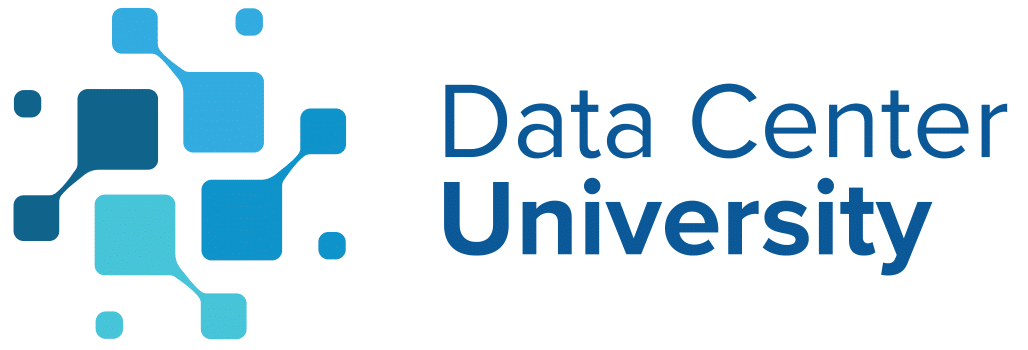
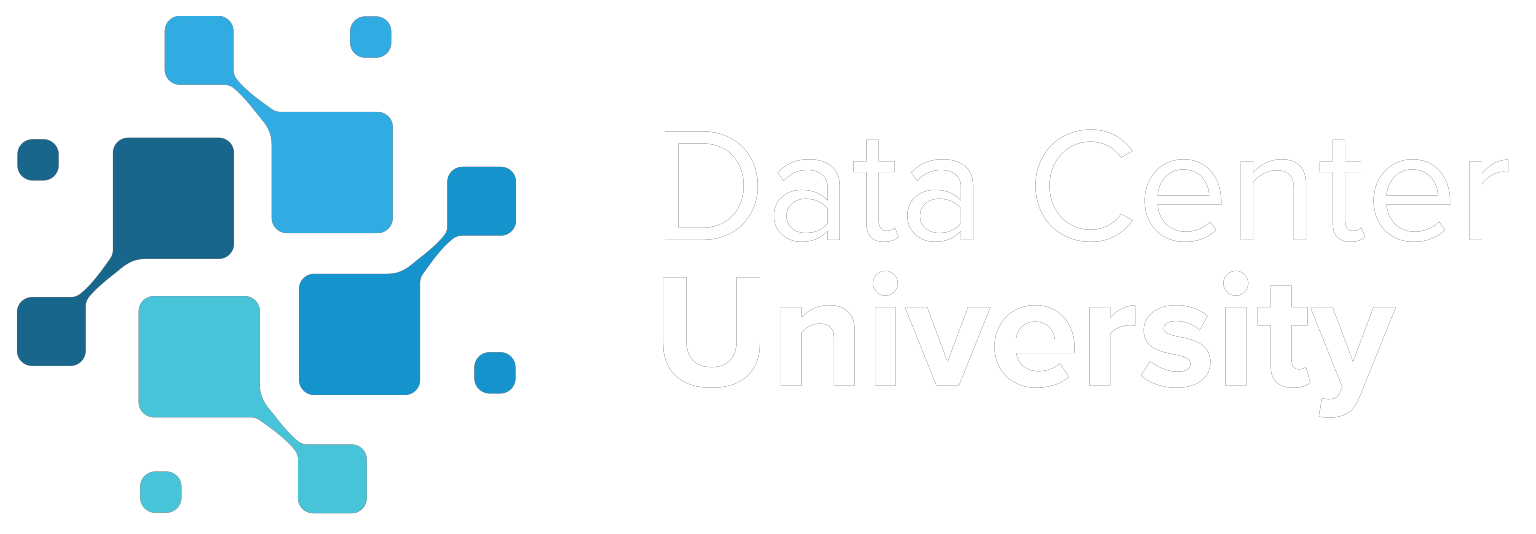
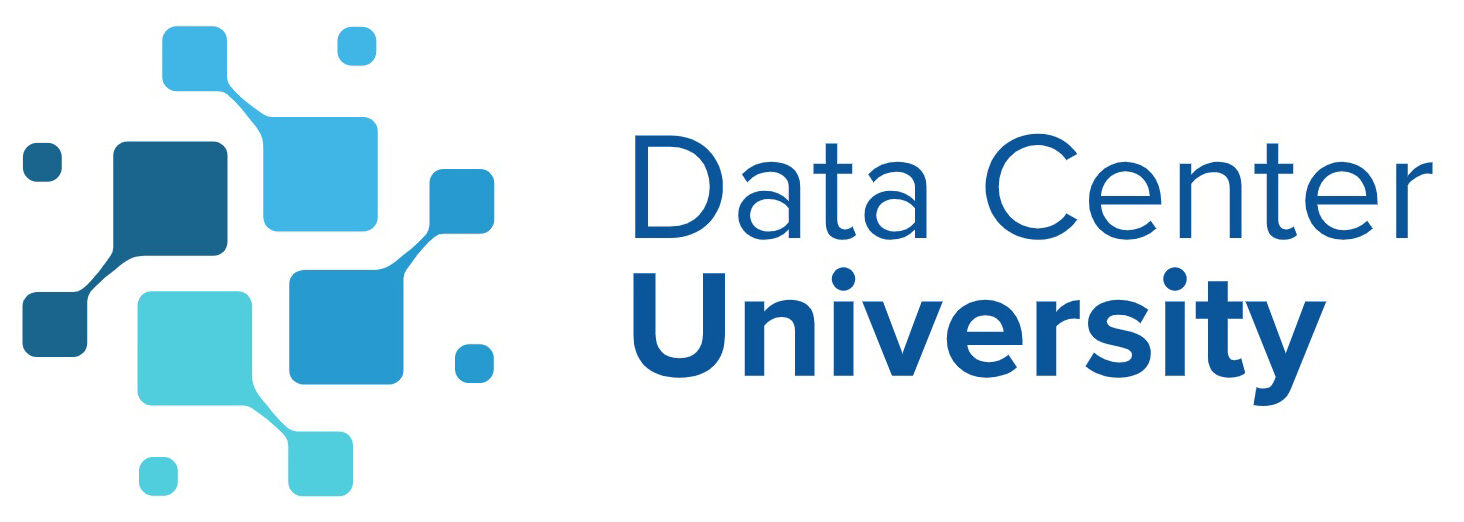
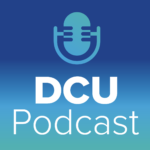
Responses